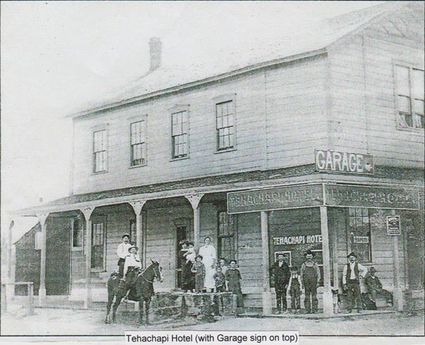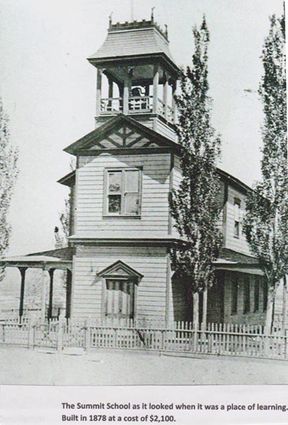The French Hotel Revisited
The Spirit of Tehachapi
I feel that, in my last column, I had done the French Hotel an injustice by somewhat skirting over its past. I had placed it, rather abruptly, on the corner of Green and F streets, without enough ceremony. A whole page of history was glossed over, and I'd like to go back and give you "the rest of the story." As aforementioned, The Summit School was a beautifully structured building where the ancestors of early settlers studied as well as the children of an influx of Spanish and French Basque, Italian and Mexican people who came to this area to pursue the sheep and cattle business. The Basque population immigrated from the Pyrenees Mountain area. The Pyrenees range served as a border for the countries of France and Spain.
After it was abandoned as a site for the local school, and – while it was still across the tracks – the building was purchased by Louis Vidaillet. A businessman of French-Basque heritage, he used it as a lodging house and named it The Tehachapi Hotel. That didn't last long and another Frenchman, Frank DuFour – a retired cattleman –, bought it in 1894 and had it moved to the F and Green streets location. Even though the letters on the front said The Tehachapi Hotel, it was run by a Frenchman, owned by a Frenchman and played lots of French/Basque music. Voilà! The community folk called it, The French Hotel!
The dining room served French food laced with wine and provided music for dancing and songs from the old country to round off the evening's entertainment. It was said to be the "best place in town to eat." One might even go so far as to say, one of the few places to eat for the local population of no more than 500 souls.
The Basque language is not found in text books, but only in the spoken word. It was with their music; composed in the narrative, ballad form. Plaintive, nostalgic songs told of the Basque, a close-knit people who "cry for one another's sorrows." With the hotel so centrally located, residents of the tiny community were often lulled to sleep (or kept awake) by the music they heard.
In 1908 the hotel was operated by Francois (Frank) Bernard, who was a native of Taurrontes, Hautes-Alpes, France. He had entered the country in 1887, coming directly to California; the place of his boyhood dreams. However well he liked the United States, he returned to France to bring home a bride, Marie Pellisson, also from the upper alps area. Her brother, Joseph Pellisson, acted as their bartender for some years. The Bernards had two children – boys – Francois, Jr. and Edward.
The hotel was so conveniently located that guests found themselves one block from the railroad depot, two blocks from the Catholic Church where most of them worshipped and just across the street and down a few doors to the grocer. By 1915, when the whole town was hooked up to the "new fangled electric lights", they were active participants in the street dance held just outside their premises.
While nearby Bakersfield was experiencing a large scale oil strike, the French Hotel played host to stockmen, grain growers, the usual sheepmen and workers who were helping to plant scores of apple and pear orchards for which early day Tehachapi was to become known.
The Bernards ceased management of the hotel in favor of establishing their own lodging place across the tracks – but also on Green Street –, which was to be known by a few as the French Hotel, the Basque Hotel by some and the Bernard Hotel by the majority of local residents. It stayed in business until Frank Bernard's death in 1940.






